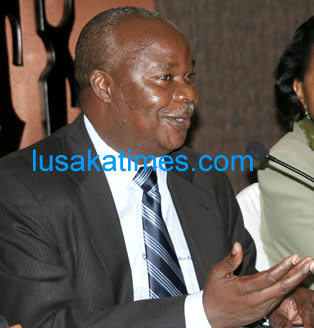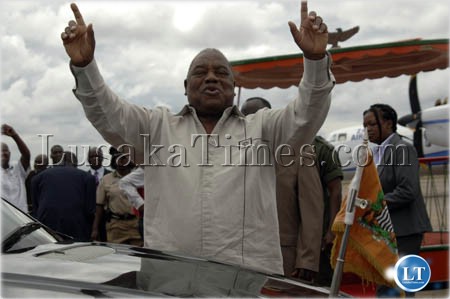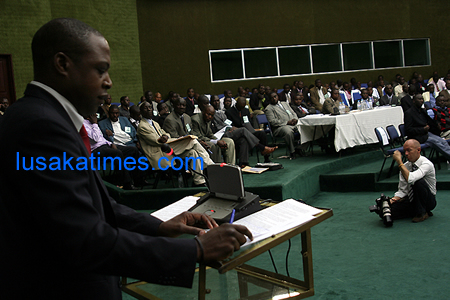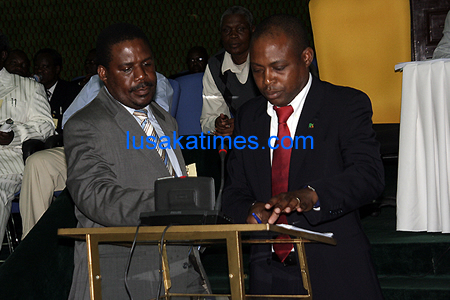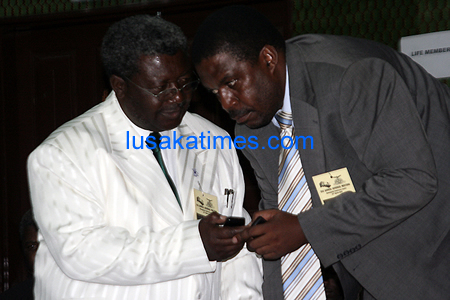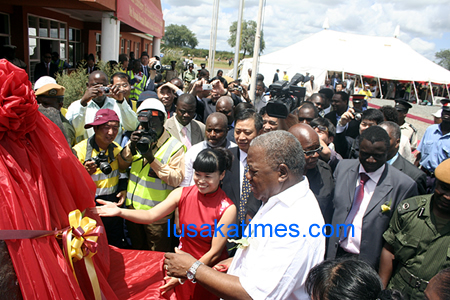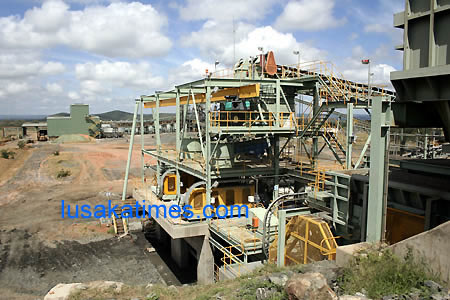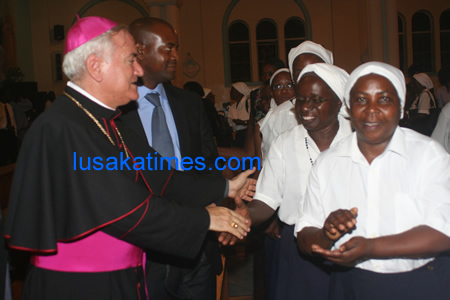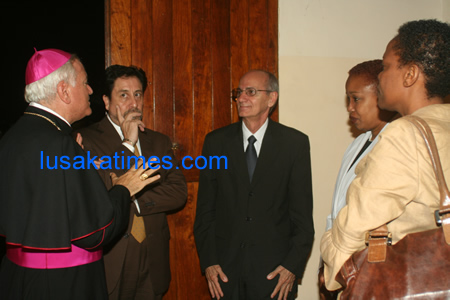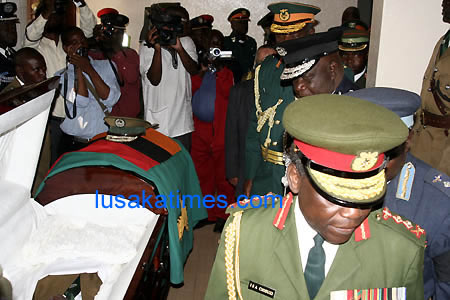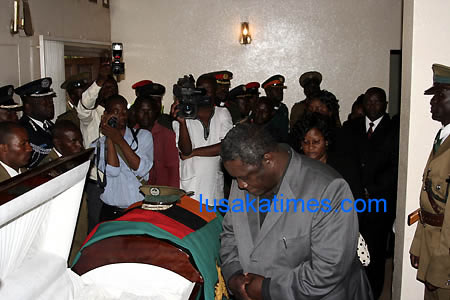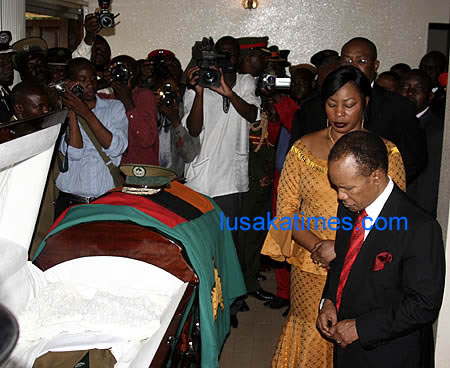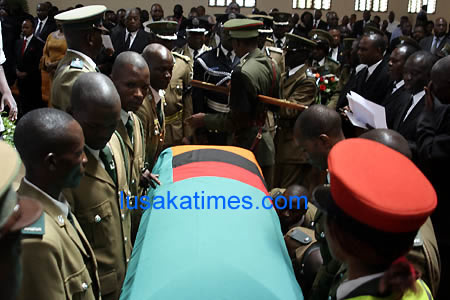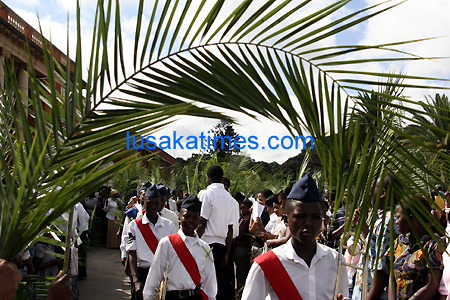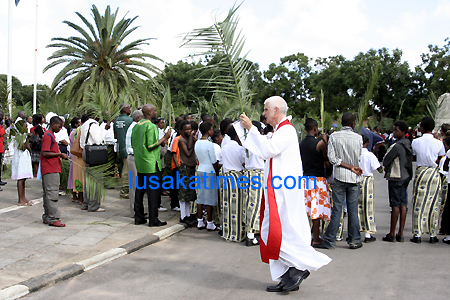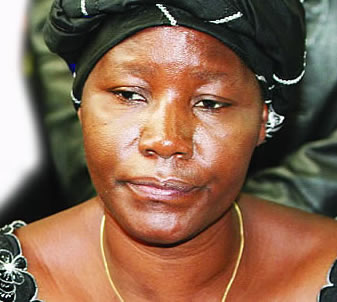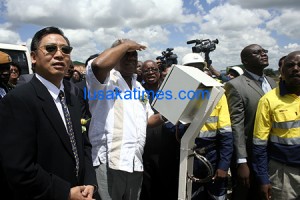
By Henry Kyambalesa
President Rupiah Banda has continued to exhibit his pettiness and ignorance in discharging his duties as Head of State and Government. On 26th March 2010, he turned the reopening of Munali Nickel Mine in Mazabuka into a political rally by attacking Fr Frank Bwalya, Hakainde Hichilema, Michael Sata, and the UPND-PF pact.
He told his audience that some opposition political leaders “are busy telling lies that when they come to power they would bring development in 100 days.” Well, it seems the President does not know that “development” is a process, and can be attained through a series of short-term, medium-term and long-term measures.
There is actually a lot a President who is in a hurry to develop Zambia can do within 100 days to set the stage for enhanced socio-economic development that is sustainable in the long run. From inauguration day on 2nd November 2008, for example, President Banda would have taken measures akin to the following, which do not include recurrent government functions:
1) November 2, 2008: (a) abolition of the positions of Deputy Minister and District Commissioner; (b) abolition of examination fees in formal education (c) abolition of TV licensing and related levies; (d) removal of public assistance to chiefs from the office of the President to the Ministry of Local Government and Housing; (e) incorporation of the functions of The Disaster Management and Mitigation Unit (DMMU) that is currently vested in the Office of the Vice-President into the functions of the Zambia National Service (ZNS); and (f) detachment of the Food Reserve Agency (FRA) from the Ministry of Agriculture and conversion of the Agency into an autonomous body, which could incorporate the functions of the Public Welfare Assistance Scheme currently administered through the Ministry of Community Development and Social Services, including the Social Cash Transfer Scheme.
2) November 5: Merging of some government Ministries and agencies, and appointment of fewer Cabinet Ministers and Directors of agencies.
3) June 1, 2009: (a) abolition of TV licensing and related levies; (b) turning of ZNBC into a public broadcaster not controlled by the government; (c) reduction of Zambian foreign missions, appointment of diplomats, and re-assignment of countries and regions to be covered by each mission; and (d ) creation of a fund for assisting orphanages.
4) October 2009: (a) start improving infrastructure in schools, colleges, universities, ZNS camps, and vacated refugee camps; (b) start providing free seeds and fertilizer for 2 consecutive years; and (c) start upward revisions of compensation packages for employees on government payroll; (d) devolution of superintendence over the civil police to provincial governments.
5) January 1, 2010: (a) reductions in PAYE and corporate income tax by 5 percentage points, and expansion of PAYE income bands; (b) reduction in VAT from 16% to 12.5%; (c) reductions in interest rates by at least 2 percentage points per year over a period of 4 years; (d) payment of all due retirement benefits owed by the government; (e) free healthcare for all without inhibiting the operations of private healthcare providers; (f) free formal education (up to Grade 12); (g) abolition of Grades 7 and 9 elimination examinations for all school children; (h) provision of scholarships to Grade 12 students who would obtain a Division 1 in order for them to pursue studies at locally based institutions of higher learning; (i) provision for low-interest government loans for Grade 12 students who would not obtain a Division 1 and elderly citizens to make it possible for them to pursue studies at locally based institutions of higher learning; and (j) mass enrolment (on a voluntary basis) of street kids and other panhandlers into skills training programs at ZNS and vacated refugee camps.
6) January 1, 2011: (a) start the implementation of home ownership schemes for the police and all civil servants, provision of low-cost rental housing units for low-income families nationwide, management of a home-ownership scheme for low-income families to be financed through low interest mortgages, and rehabilitation of shanty townships; and (b) start improving infrastructure in resettlement schemes nationwide.
7) June 2011: Start providing a seed and fertilizer subsidy at 50%.
8) September 2011: General Elections.
As a by-stander, I expected the President to devote his entire speech to a discussion of development-related issues, such as the role of investments in mining and other sectors of the economy in national development. He needs to learn that criticism and dissent are necessary evils in politics. If he cannot withstand the heat, he should stay out of the kitchen!


